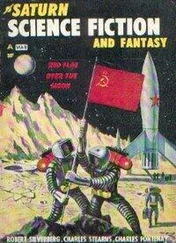Clare Vanderpool - Moon Over Manifest
Здесь есть возможность читать онлайн «Clare Vanderpool - Moon Over Manifest» весь текст электронной книги совершенно бесплатно (целиком полную версию без сокращений). В некоторых случаях можно слушать аудио, скачать через торрент в формате fb2 и присутствует краткое содержание. Год выпуска: 2010, ISBN: 2010, Издательство: Random House Children's Books, Жанр: Старинная литература, на английском языке. Описание произведения, (предисловие) а так же отзывы посетителей доступны на портале библиотеки ЛибКат.
- Название:Moon Over Manifest
- Автор:
- Издательство:Random House Children's Books
- Жанр:
- Год:2010
- ISBN:978-0-375-89616-3
- Рейтинг книги:4 / 5. Голосов: 1
-
Избранное:Добавить в избранное
- Отзывы:
-
Ваша оценка:
- 80
- 1
- 2
- 3
- 4
- 5
Moon Over Manifest: краткое содержание, описание и аннотация
Предлагаем к чтению аннотацию, описание, краткое содержание или предисловие (зависит от того, что написал сам автор книги «Moon Over Manifest»). Если вы не нашли необходимую информацию о книге — напишите в комментариях, мы постараемся отыскать её.
Moon Over Manifest — читать онлайн бесплатно полную книгу (весь текст) целиком
Ниже представлен текст книги, разбитый по страницам. Система сохранения места последней прочитанной страницы, позволяет с удобством читать онлайн бесплатно книгу «Moon Over Manifest», без необходимости каждый раз заново искать на чём Вы остановились. Поставьте закладку, и сможете в любой момент перейти на страницу, на которой закончили чтение.
Интервал:
Закладка:
She kept me busy doing anything but working in the garden. And anywhere but near the garden shed.
When I first started working off my debt to Miss Sadie for breaking her Hungarian pot, she said I’d know when I was done. I knew I’d worked off more hours than was needed to square my debt. But I also knew I wasn’t done. I wasn’t done hearing her story of Manifest.
I could have asked Shady to fill in the rest and saved myself some work. But somehow I knew he would know only his piece of it, like Hattie Mae would know just her piece of it. Only Miss Sadie knew the whole story. She was the one who’d watched and listened all these years. Even now the people who came by her place, they talked and talked, unburdening themselves of all manner of tales and stories. And she listened to them all.
I was also becoming more interested in Miss Sadie’s own story. What had brought her to America? Why did she stay in Manifest if she was such an outcast? There was more to Miss Sadie than baubles and beads.
Her mood was putting me in a mood. I was working and she wasn’t talking. I tried to find a way to bait her into a story, and I figured there’s no better bait for a storyteller than to get part of the story wrong.
“I saw some lilacs down by Ruthanne’s place,” I said. It was miserable hot that afternoon on Miss Sadie’s porch. My hands were deep in a tub of soapy water, cleaning out one dusty mason jar after another, while Miss Sadie rocked steadily in her porch rocker.
“Hmm,” she murmured with little interest as she blew some tobacco ash from her pipe.
“I bet the Widow Cane could say which of the thirty-seven varieties of lilac it was. I’m sure a bunch would look nice in one of these jars.”
“Hydrangea,” Miss Sadie said, tamping down a wad of new tobacco into the pipe.
“What’s that?”
“There are thirty-seven varieties of hydrangea, not lilac—and I plan to use the jars for canning fruits and vegetables.”
Fruits and vegetables from her parched garden, no doubt. “Hydrangeas, lilacs. Probably didn’t make much difference in the long run. I don’t imagine anyone could raise a thousand dollars in four weeks.”
She stopped rocking. “So that is what you think?”
“That’s what I think,” I answered, swishing suds in and out of the umpteenth mason jar that would probably collect another year’s worth of dust before there’d be any fruit fit for canning.
“Pah,” Miss Sadie grunted. “One who cannot tell the difference between lilac and hydrangea can hardly speculate about such things.”
I was close but not quite there.
“Well, at least Shady stayed out of it. He’d never be involved in something … well … shady.”
Miss Sadie heaved a heavy sigh.
“Shady was in it … How do you say? Up to his neck. We all were.…”
The Walls Go Up
AUGUST 15, 1918
It started with a few coughs and body aches. Then it moved to fever, chills, and dizziness. Everyone had read of the symptoms that were not supposed to cause any concern—the same symptoms that were spreading from town to town throughout the country.
All over Manifest, people were showing signs of this influenza. In church, the library, the mines, a few coughs that turned into a wheeze. Rubbing of the neck and shoulders. Even in the August heat, you might see a woman draw on her shawl to calm her shivers.
There was a tension that permeated Manifest, as if one shoe had fallen on it and the whole town was waiting for the other to drop. But where, when, and on whom it would fall was still unknown.
Many were the times Jinx thought he’d better get while the getting was good. But every time he thought he’d light out, he’d see Sheriff Dean hovering about, watching him. No, for now, he just had to hope that the town had some luck that was better than his.
Once the telltale signs of sickness had been exhibited, it didn’t take long for Lester Burton, Arthur Devlin, and their wives and associates to start feeling a bit puny. Or if they weren’t actually feeling sick yet, it was clear to them that with everyone coughing, sneezing, and wheezing all around them, it was only a matter of time. So anyone with means, including Burton, Devlin, and their lot, used the opportunity to take a holiday—elsewhere. Even Sheriff Dean stayed close to his home, which was down by the river and safely outside of town.
The county medical examiner was called in, and within thirty minutes he declared that until the influenza ran its course, the entire town of Manifest would be under official quarantine. Nobody goes in. Nobody gets out.
After the last train had pulled out and the smoke from the last Model T had settled, there was an unearthly quiet, as if death had won out. Then, after a minute or two that seemed to last for hours, the mine whistle blew.
A few curtains were pulled aside by people peeking out to make sure that all was clear. Mr. Keufer, still wearing his pajamas, was the first to venture into the street. Then Mrs. Cybulskis stepped onto her porch, washing from her face the powder that had given her a deathly pallor.
Soon everyone was smiling and shaking hands, patting one another on the back. It was as if a miracle had happened and all were healed, but the real miracle was that Burton and Devlin had fallen for their ruse. With the mine included in the quarantine, there would be no whistles calling the men to work. No long hours of labor that did little but line the pockets of Devlin and Burton.
The children were particularly excited. The start of school would be postponed. Food and supplies would be brought by train and left just outside of town. Word spread quickly, and soon Stucky Cybulskis, the McIntyre boys—Danny, Michael, Patrick, and Sean—the Santoni brothers, and even nine-year-old Rosa Santoni, who was as pretty as pie but as rough and tumble as the big boys, all climbed trees or perched themselves on rooftops, appointing themselves sentries of Manifest. They would stand guard to keep a careful eye on anyone approaching from the outside. Among them all, Jinx was hailed as a local hero for coming up with the greatest scheme ever.
But the greatest scheme ever would involve a lot of work. While the trees were lined with young sentinels keeping watch, the adults would be busy making the one thing that had brought in any money of late: the combined concoction of Shady’s hooch and Velma T.’s elixir.
Mama Santoni donned an apron and led the women in shucking corn. Greta Akkerson and Etta Cybulskis rolled up their sleeves and joined in. Their many hands made light work as they shared stories of home and family.
They talked of their common experiences of traveling to America on ships filled with immigrants, tears of emotion welling up as they recounted their first sightings of the Statue of Liberty, and the joy and fear of arriving at Ellis Island.
“I was so afraid I would be turned back,” said Mrs. Cybulskis, wiping her brow with the back of her hand. “The way they examined everyone for disease and malady.” The women nodded in agreement. They had all experienced the fear of being labeled unfit to enter America. A simple chalk mark drawn by the medical examiner on one’s clothes could have a person barred from entering his newly adopted country. An E for eye problems, an L for lameness, an H for heart problems. They would have to board another boat and go back to wherever they’d come from no matter how long a journey they had just traveled.
“In Poland,” Mrs. Cybulskis continued, “I have no shoes, so my neighbor, he is a cobbler, he makes me a new pair. Beautiful shoes with fancy heels. Never had I walked in heels. The inspectors detain me, because they think I have a problem with balance and maybe am sick.” Mrs. Cybulskis shrugged, raising her hands, which were full of corn husks. “I have to take off my shoes to show I can walk straight!” The women laughed together as they filled bucket after bucket with corn.
Читать дальшеИнтервал:
Закладка:
Похожие книги на «Moon Over Manifest»
Представляем Вашему вниманию похожие книги на «Moon Over Manifest» списком для выбора. Мы отобрали схожую по названию и смыслу литературу в надежде предоставить читателям больше вариантов отыскать новые, интересные, ещё непрочитанные произведения.
Обсуждение, отзывы о книге «Moon Over Manifest» и просто собственные мнения читателей. Оставьте ваши комментарии, напишите, что Вы думаете о произведении, его смысле или главных героях. Укажите что конкретно понравилось, а что нет, и почему Вы так считаете.












